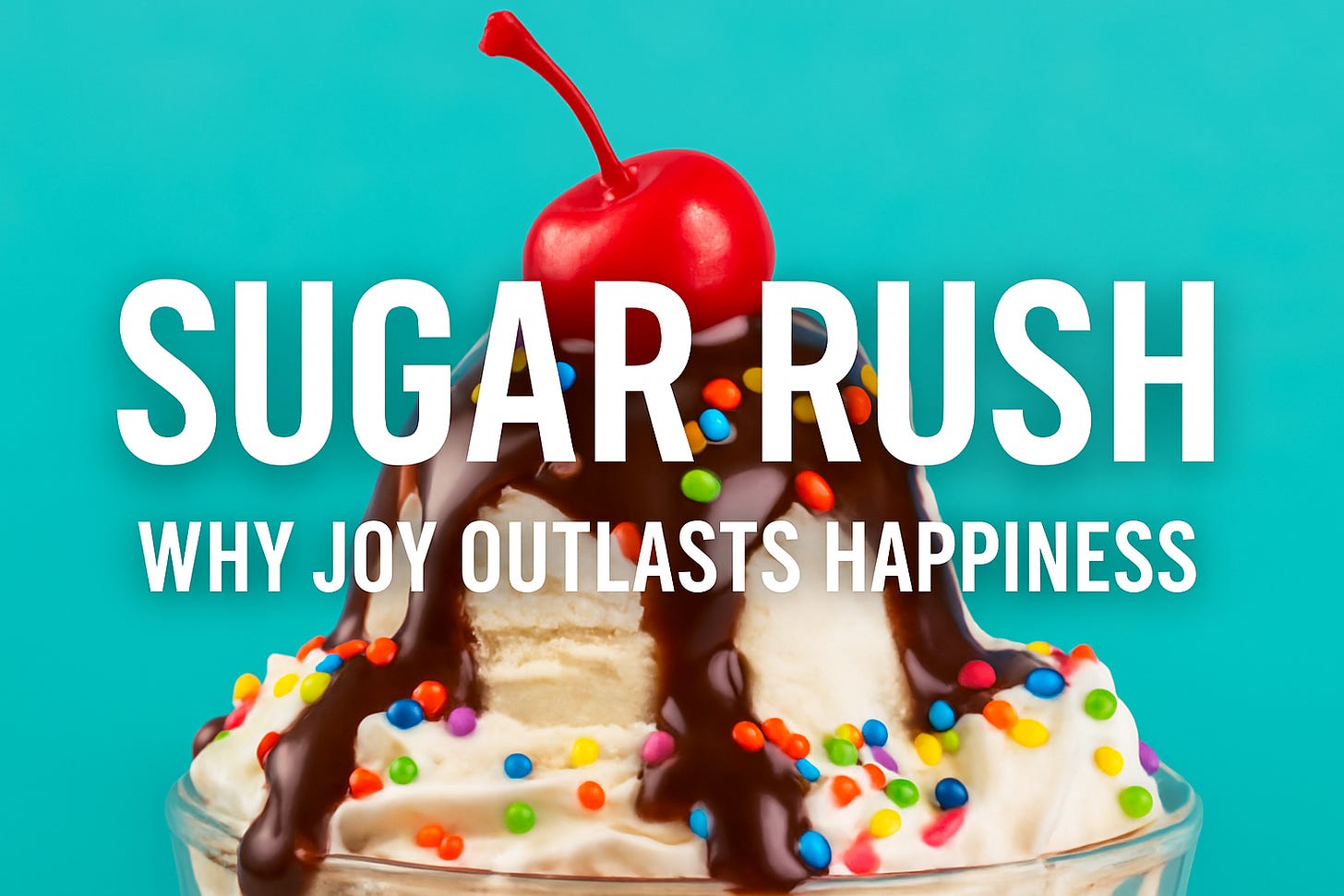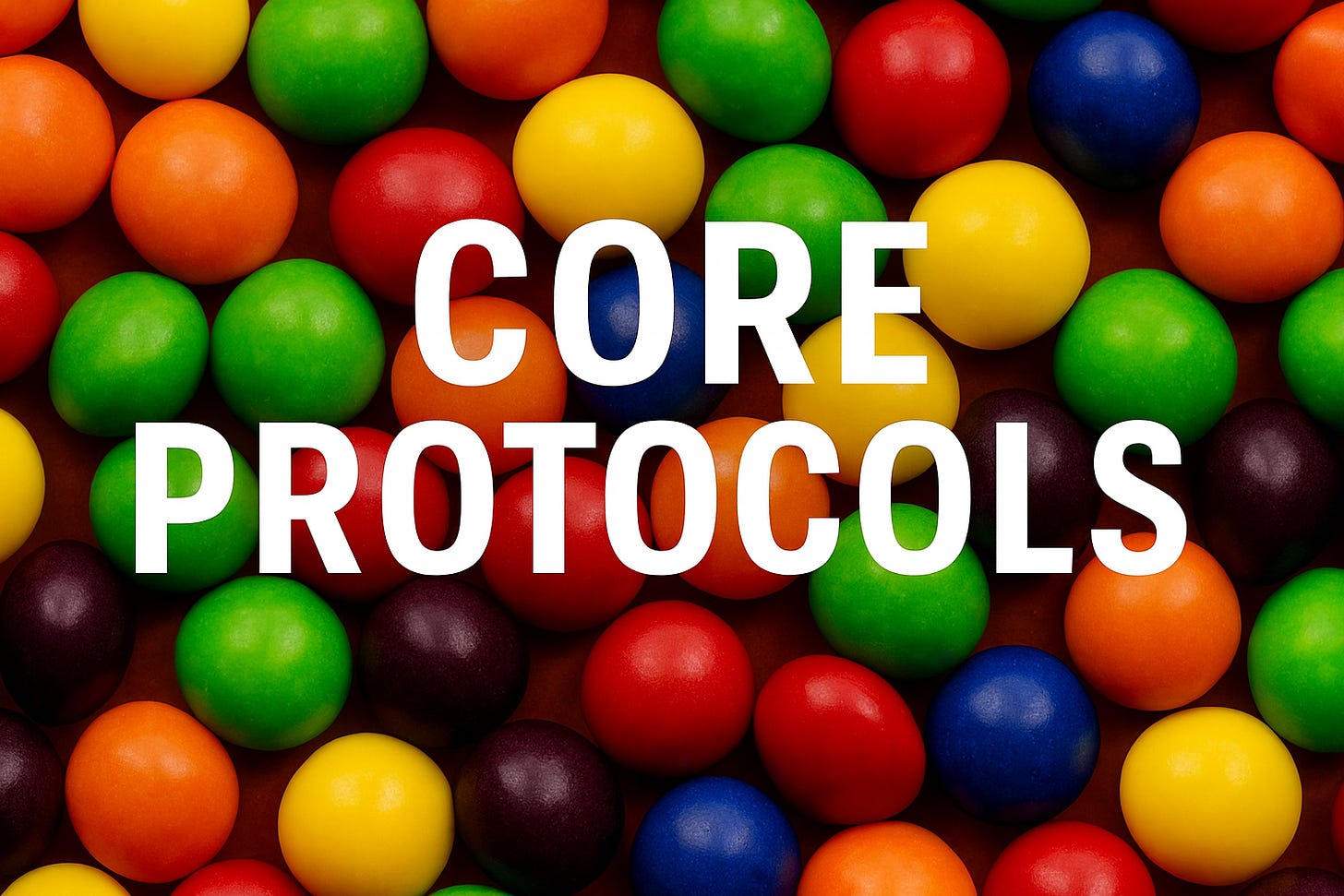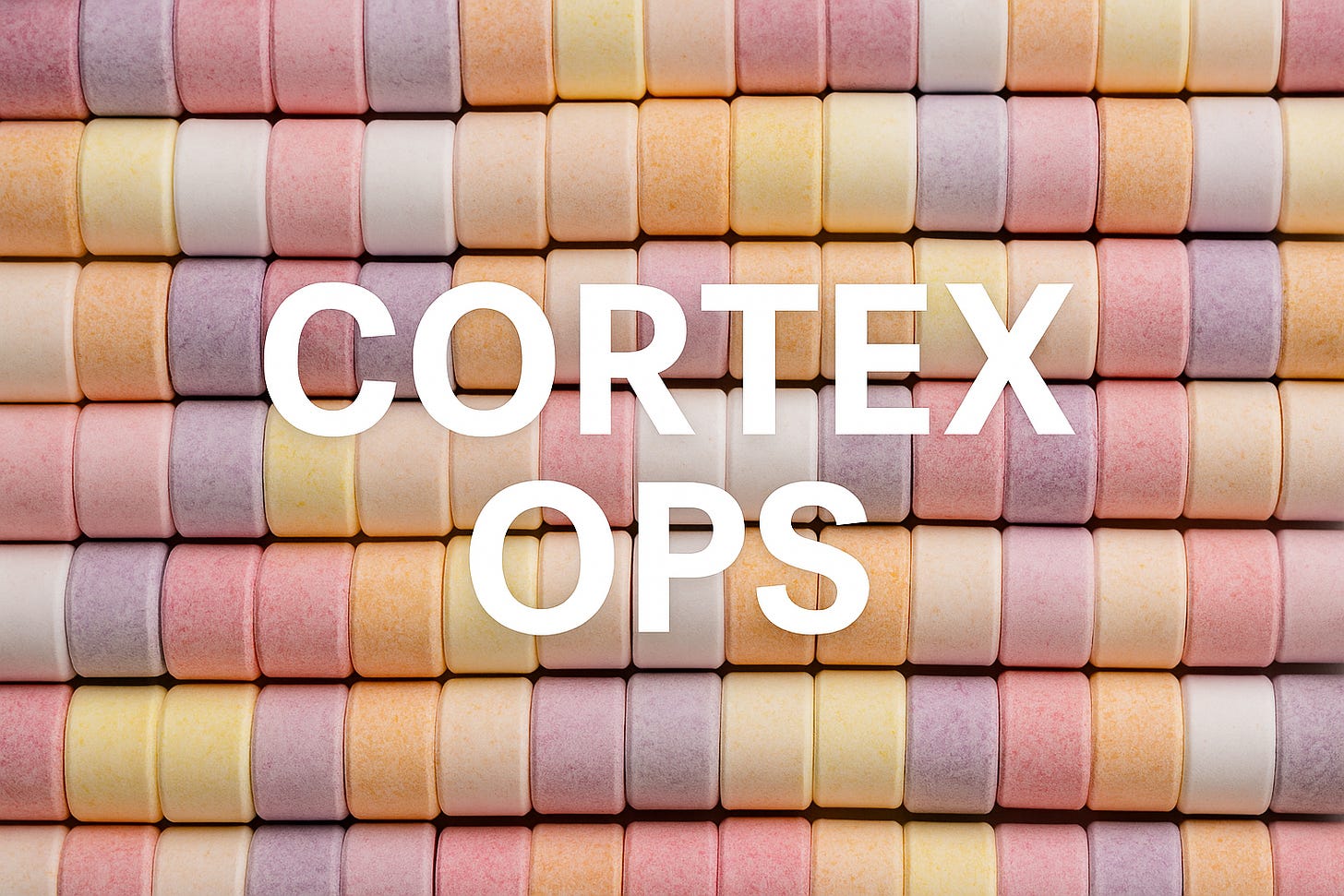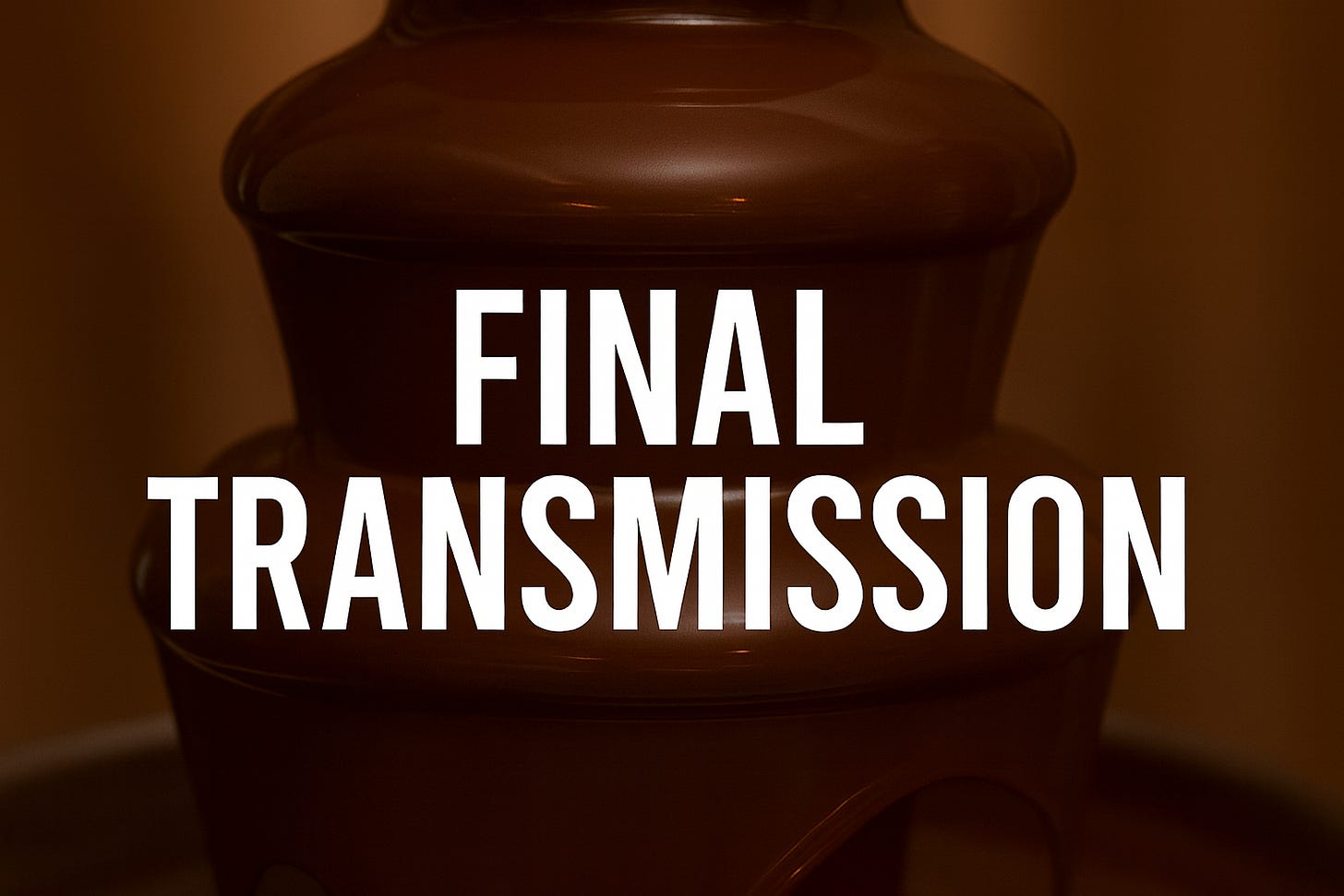SIGNAL CAPTURE
Why is joy listed as a fruit of the Spirit, but not happiness?
That’s not an accident. God designed joy as something eternal, rooted in His character, while happiness is fleeting—an emotional sugar high tied to circumstances. The Bible doesn’t dismiss happiness, but it never elevates it to the level of joy.
When Scripture talks about “the fruit of the Spirit” (Galatians 5:22–23), it means the visible evidence that God’s Spirit is alive in someone. Just like an apple tree naturally produces apples, a life rooted in God produces qualities like love, joy, peace, patience, kindness, and self-control. They aren’t personality quirks or moods—they’re supernatural markers that point to the Source.
The difference between happiness and joy isn’t just theory—it’s lived. I saw it when my mother died after a two-year battle with cancer. We weren’t happy—how could we be?—but we had joy. Strength, even. The grief was real, but underneath it was a current we couldn’t manufacture on our own. As Nehemiah wrote, “the joy of the Lord is your strength” (Nehemiah 8:10). That strength held us when happiness couldn’t. That experience showed me what Scripture means by joy as a fruit of the Spirit.
A recent message at church dug into Philippians—the “epistle of joy.” Paul, writing under house arrest, mentions joy or rejoicing nineteen times in just four chapters. He had no freedom, no comfort, no certainty about tomorrow, but joy still poured out of him. Happiness, by contrast, is a cultural mirage—always shifting, always promising more if we can just reach the next milestone (graduation, career, marriage, retirement). But the line keeps moving. The result is what our culture has become: “happy, but hollow.” Joy is something else entirely: a Spirit-driven reality, anchored in Christ, that no circumstance can uproot.
That message cracked open a question I couldn’t shake: if happiness is a mirage, and joy is fruit of the Spirit, how do we stop chasing the wrong one?
CORE PROTOCOLS
Joy roots in God’s presence. “The fruit of the Spirit is love, joy, peace…” (Galatians 5:22). Notice what’s missing: happiness. Joy isn’t mood but Spirit-birth. Unlike happiness, which shifts with every gust of circumstance, joy grows deep within, nurtured by the steady presence of God’s Spirit. It’s slow-cooked, like a protein-rich meal—less flashy, more nourishing. Joy is not circumstantial seasoning; it is the meal itself.
Happiness can be stolen. Joy cannot. Circumstances are fragile. The job disappears, the diagnosis lands, the relationship fractures—and happiness collapses with them. Jesus prepared us for this: “In this world you will have trouble. But take heart! I have overcome the world” (John 16:33). Happiness is a balloon that pops when pierced. Joy is an underground spring—hidden, resilient, flowing even in drought.
Joy reframes suffering. Happiness demands comfort; joy transforms discomfort into growth. James tells us, “Consider it pure joy…whenever you face trials of many kinds, because you know that the testing of your faith produces perseverance” (James 1:2–3). Paul modeled this when he wrote that his imprisonment advanced the gospel (Philippians 1:12). Faith doesn’t deny reality; it adds God’s reality to it. Joy doesn’t erase pain; it reframes it.
Joy is fueled by purpose. If you live for comfort, pleasure, or self, your joy will remain fragile. But Paul could say, “To live is Christ, and to die is gain” (Philippians 1:21). That purpose made him untouchable. Viktor Frankl once observed that meaning, not pleasure, sustained people through the Holocaust. True joy comes when your “why” is anchored in Christ, not in circumstance.
Joy is strengthened by surrender. Many of us live “white-knuckled,” gripping outcomes we can’t control. Paul rested in prayer and in the Spirit’s provision (Philippians 1:19). Joy remains when you trust the God of outcomes, even when you don’t control the outcomes themselves.
Joy outlasts seasons. Happiness is seasonal weather—sun one moment, storms the next. Joy is climate—stable, enduring, and long-range. Paul understood this when he wrote from prison about rejoicing. He wasn’t waiting for release papers to feel joy; he carried it into the cell. Happiness requires the storm to stop; joy lets you sing in the middle of it.
CORTEX OPS
Neuroscience reinforces God’s design.
Hedonic adaptation. Psychologists observe that happiness fades fast. Win the lottery, take the dream trip, and within months you return to your emotional baseline. This treadmill is powered by dopamine—the brain’s “reward” chemical. Like sugar, it spikes, thrills, and crashes. That’s happiness. It tastes sweet, but it can’t sustain a soul.
Joy’s chemistry. By contrast, serotonin and oxytocin rise slowly through gratitude, belonging, trust, and purpose. They’re like protein and slow-burning carbs—energy that stabilizes and strengthens. Joy, like these deeper circuits, is internal—built through gratitude and alignment with God, not dependent on external outcomes.
The design. Paul called joy a fruit of the Spirit because it’s built to last. A fire in the hearth, not a sparkler in the dark. Neuroscience now confirms what Scripture declared: fleeting pleasures are substitutes for something deeper. C.S. Lewis wrote, “I sometimes wonder whether all pleasures are not substitutes for Joy.” The quick hit of dopamine-driven happiness is only a shadow of the steady feast God designed: “The joy of the Lord is your strength” (Nehemiah 8:10).
TACTICAL DEPLOYMENT
Audit your diet—spiritual and emotional. Ask: am I living on dopamine desserts, or feeding on the Spirit’s steady meal? Entertainment, purchases, and quick wins taste sweet but leave you empty. The Word, prayer, worship, and fellowship are the protein your soul was designed for.
Train your palate for joy. Just as the body craves sugar when undernourished, the soul craves quick happiness when disconnected from God. Retrain your appetite. Practice gratitude daily. Serve someone quietly. Read Scripture aloud. Over time, you’ll start craving the feast, not the candy.
Fast from sugar. Take a week off social media. Skip the impulse buy. Delete the app that keeps you scrolling at midnight. Enjoy happiness when it comes, but don’t confuse it with nourishment.
Practice lament as worship. Write your own psalm-like prayer: name your grief, and then name God’s presence in it. This anchors sorrow in hope. Joy doesn’t erase pain—it stands beside it.
Stay rooted in the Source. Joy is fruit, and fruit doesn’t grow apart from the tree. Jesus said, “Remain in me…apart from me you can do nothing” (John 15:4–5). That means daily connection—prayer, Scripture, worship—to let joy grow. If joy is missing, the solution isn’t to chase harder—it’s to abide deeper.
FINAL TRANSMISSION
Happiness is a moving target. Joy is a settled reality, anchored not in what changes but in Who never changes.
Happiness was never meant to be your fuel. It’s dessert—sweet for a moment, gone in an instant. Joy is God’s design: fruit of the Spirit, sustenance for the soul, strength in the storm.
One spikes your blood sugar; the other builds your strength. One is stolen easily; the other endures eternally.
But don’t just admire the contrast—choose it. Choose to stop living on emotional sugar highs and start cultivating the feast of joy. Refuse the cultural mirage that says happiness will come with the next milestone. Instead, anchor your life in the presence of Christ, where joy flows steady and unshakable.
Paul showed us it’s possible to write a letter of joy in chains. James showed us it’s possible to call suffering “pure joy” because of what it produces. And Jesus Himself showed us that joy is not optional—it’s His gift: “I have told you this so that my joy may be in you and that your joy may be complete” (John 15:11).
The world doesn’t need more people chasing happiness; it needs people anchored in joy. People who can surrender outcomes because God can be trusted. People who can sing in storms. People whose lives testify that joy is not circumstance, but Spirit.
So here’s the call: Don’t settle for dessert. Sit down to the dinner God has prepared. Stop chasing what fades. Start cultivating what endures. Choose joy—the Spirit’s fruit, your soul’s strength, and the only feast that will last forever.
“The joy of the Lord is your strength” (Nehemiah 8:10).
[FIN/ACK]
Transmission Complete
Process Accordingly
—Protocol One
If Sugar Rush stirred something in you, consider fueling the work behind it. Writing, research, and design take time—and your support helps me keep producing these deep dives without hiding them behind a paywall.
☕️ buymeacoffee.com/protocolone
Every cup keeps the joy flowing.







